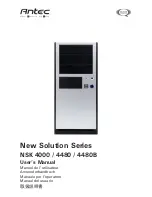
Maintenance
Oxymax W COS51D
22
Hauser
7.1.2
Cleaning the cathode
The cathode only needs to be cleaned when it is visibly soiled or there is a coating of silver on it.
To clean it, proceed as follows:
1.
Unscrew the membrane cap from the membrane body.
2.
Carefully clean the cathode surface in two stages with the abrasive sheet (contained in scope
of supply) until the (silver) coating is fully removed. Use the green sheet first and then the
yellow sheet.
3.
Clean the open sensor head with drinking or distilled water.
4.
Fill the membrane cap with fresh electrolyte COY3-F and screw it back onto the membrane
body (up to the stop).
"
Caution!
Anode and reference electrode
are covered with a silver bromide layer at the factory.
Do not
clean them under any circumstances!
If the coating is removed as a result of operation (anode and/or reference electrode is/are silver),
the sensor is unusable and must be sent in for recoating. In this case, contact your sales office.
7.2
Replacing wear and tear materials
Parts of the sensor will suffer wear and tear during operation.
Suitable action can restore normal operating functionality. This action includes:
#
Warning!
Before beginning replacing, switch off the power supply at the transmitter.
7.2.1
Replacing the sealing ring
Replacing the sealing ring is only necessary when it is visibly damaged. For replacement, use only
original sealing rings.
7.2.2
Replacing the electrolyte
The electrolyte COY3-F is slowly used up during measuring operations. The cause of this is
electrochemical substance reactions. No substance reactions occur in de-energised state and the
electrolyte is not used up.
The theoretical service life of an electrolyte filling for use in air-saturated drinking water at 20 °C
(68 °F) is as follows:
• COS51-****0: 5 years
• COS51-****1: 1 year
The electrolyte life is shortened by diffused, dissolved gases such as H
2
S, NH
3
or high concentrations
of CO
2
.
Particular loads occur with:
• anaerobic stages (e.g. denitrification)
• strongly polluted industrial wastewater, particularly at high temperatures.
#
Warning!
Risk of acid burns!
The electrolyte is strongly alkaline. You must follow the appropriate occupational safety regulations.
Always wear protective gloves and goggles with handling electrolytes.
Action
Cause
Replacing the sealing ring
visual damage to the sealing ring
Replacing the electrolyte
unstable or implausible measuring signal or electrolyte soiling
Replacing the membrane cap
uncleanable membrane, damaged membrane (hole or overstretch)















































